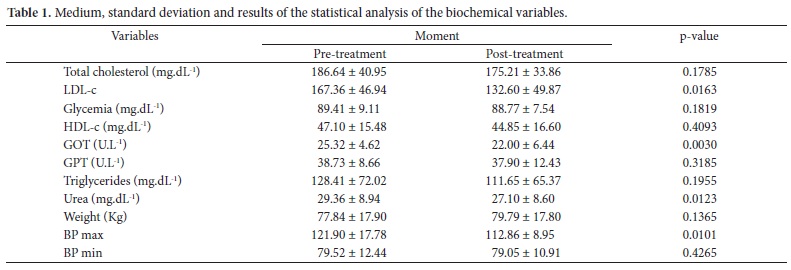The hypolipidemic effects of several medicinal plants have already been demonstrated, but many plants commonly used to treat diseases still need to be studied. Peppermint (Mentha piperita) is widely consumed by the population for different purposes, but not for the treatment of dyslipidemias. The objective of this study was to examine the effects of this plant on human biochemical and anthropometric profiles and blood pressure, based on the administration of peppermint juice twice daily for 30 days. Blood samples were collected before and after the treatment in order to determine the glycemic and lipid profiles, and the Body Mass Index (BMI) analysis was performed. Results indicated that 41.5% of the subjects showed a reduction in glycemia, 66.9% in total cholesterol levels, 58.5% in triacylglycerides, 52.3% in LDL-c (low-density lipoproteins) indices, 70% in GOT (glutamic-oxaloacetic transaminase) levels, 74.5% in GPT (glutamic-pyruvic transaminase) levels, and that 52% presented an increase in HDL-c (high-density lipoprotein cholesterol) indices. Also, 52.5% showed a decrease in blood pressure and 48.7% in BMI. The use of peppermint by humans can be considered beneficial in the prevention and treatment of risk factors of chronic degenerative diseases.
mentha piperita; dyslipidemias; metabolic syndrome; blood pressure

